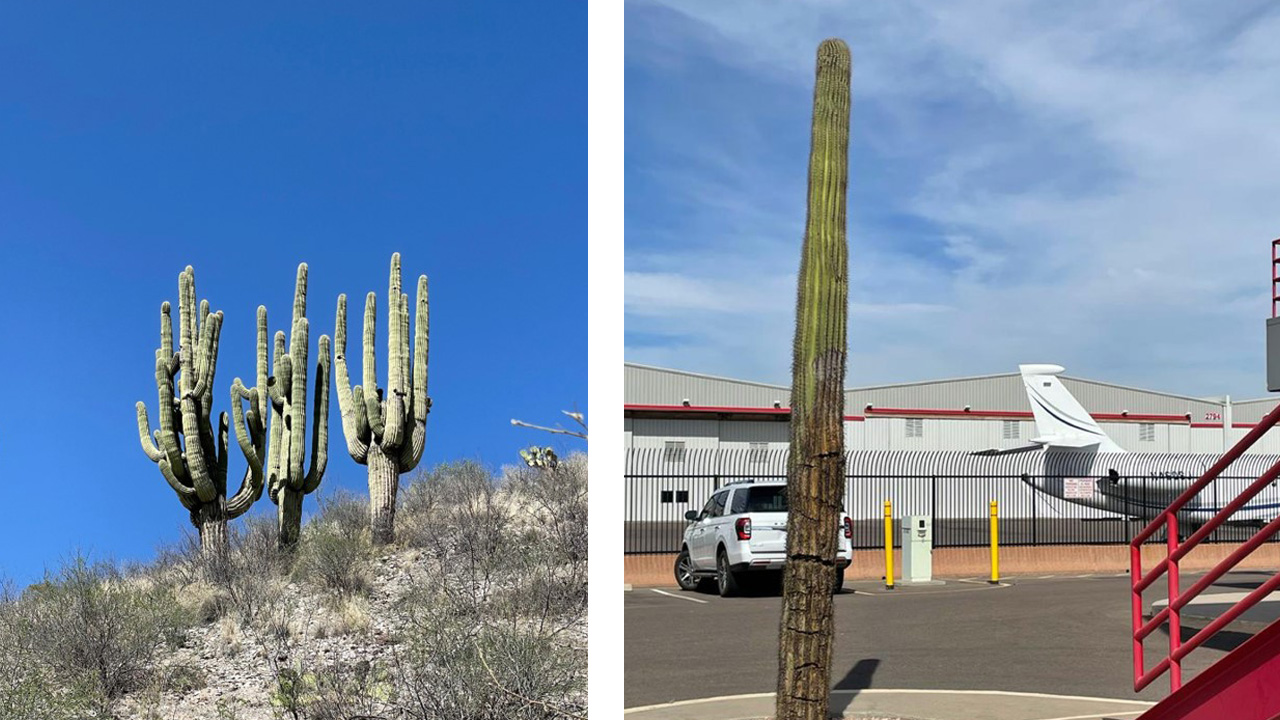Saguaros are Arizona’s unique icons however, their ubiquitous presence in urban landscapes might be at risk. In recent years, there’s been increased reports of fallen or ill saguaros across the Phoenix metro area. Although the ultimate causes might not yet be identified, a warmer and drier climate in urban areas might be overstressing saguaros. Under extreme temperatures, saguaros can be more susceptible to infections or illnesses, or they might not be able to recover from regular dehydration that happens during the dry season.

Buildings and roads absorb and re-emit heat, causing what we know as urban heat islands. Daytime temperatures can reach about 1 to7 degrees higher than neighboring wild areas and nighttime temperatures about 2 to 5 degrees higher. All of these are factors can hinder urban saguaros’ development and health, and these might be similar conditions wild saguaros could face in the near future with climate change.
To better understand the effects of climate change and increased temperatures in urban areas, Garden researchers launched the Saguaros Under Stress project.

Valley residents can volunteer their saguaros for the Garden’s study. Homeowners and anyone that owns a saguaro can participate by filling out this form.
The Garden will randomly selected a few saguaros volunteered. Researchers also will focus on plants that are evidently stressed.
Scientists will analyze each saguaros’ DNA sequence and obtain results.
If your saguaro was is selected for the study, Garden scientists will visit your saguaro to take a small stem tissue sample and immediately freeze it in liquid nitrogen. Samples will be taken to the Garden’s lab to extract DNA and RNA. Samples will be sequenced and analyzed, to better understand the stress effects at the molecular level.

A genealogy analysis will be performed, to trace the closest wild relatives of urban plants.

Saguaros Under Stress will help the Garden better understand the effects of stress not only on saguaros, but other desert plants as well.
The Garden appreciates the participation of volunteers and their saguaros for this project. Contact Dr. Tania Hernandezat [email protected]
You can also join the mailing list to get more information and updates about the Saguaro Census and the Saguaros Under Stress project by filling this form.



